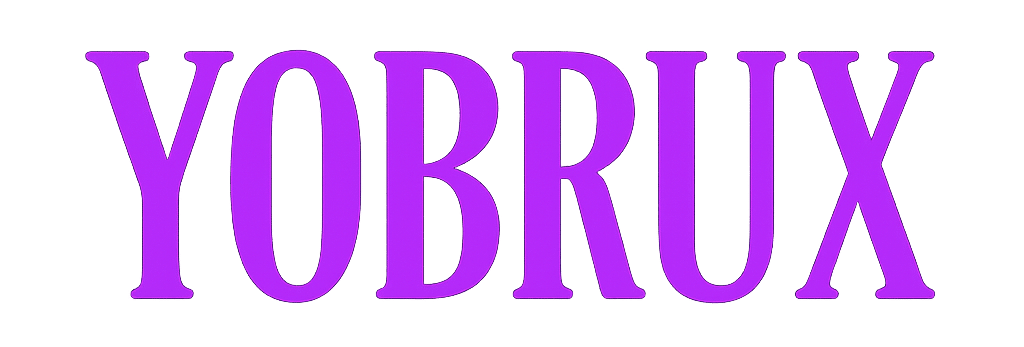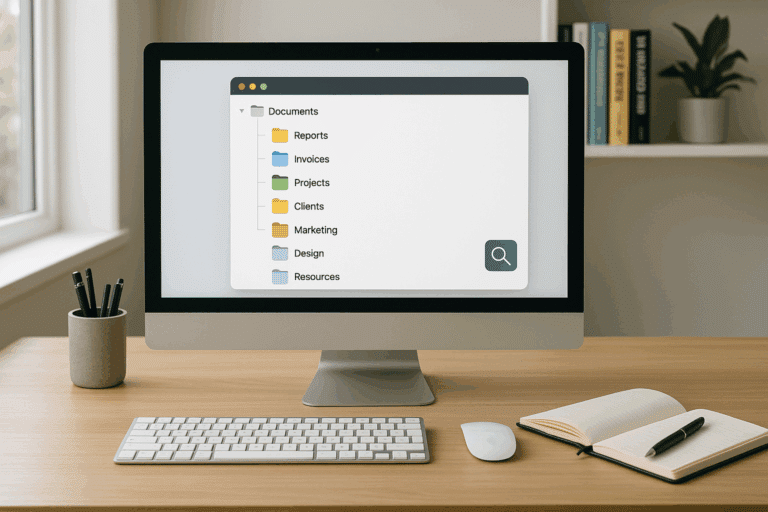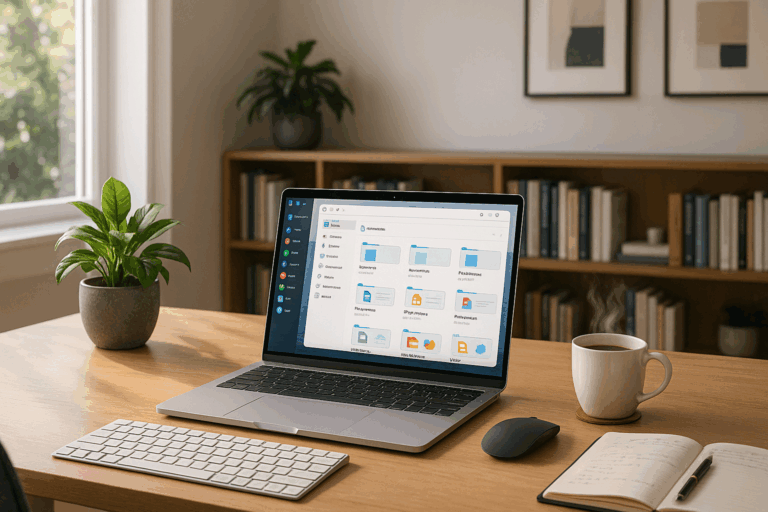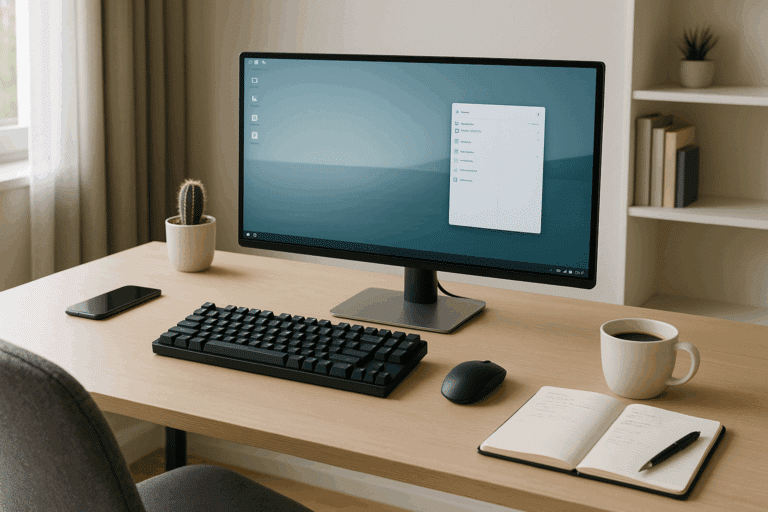In today’s digital-driven landscape, it’s clear that remote work has become a significant part of our professional lives. Yet, it’s also apparent that effectively managing and organizing our day-to-day tasks while working remotely can be a challenging endeavor. It requires a substantial amount of dedication, discipline, and – most importantly – a well-structured system. And that’s where the idea of building a personal wiki comes into play. 💻
A personal wiki can be a game-changer in optimizing your remote work routine. Just like an encyclopedia, a personal wiki serves as an organized system where you can store, manage, and retrieve information. It not only helps you streamline your daily tasks, but it also ensures that you stay focused and productive. Think of it as a digital version of your workspace where everything is at your fingertips. 📚
However, creating a personal wiki is not as simple as it seems. It involves a comprehensive understanding of various elements such as software applications, data management techniques, and more. So, if you are looking to master your remote work routine by leveraging the power of a personal wiki, you’ve landed at the right place. 🎯
Getting Started: Understanding the Basics
The first part of this comprehensive guide will be dedicated to understanding the basics of a personal wiki. We will delve into the essential features that every personal wiki should have, the software applications that you can use to build your wiki, and how you can start setting it up. Whether you are a tech-savvy professional or someone who’s just starting in the realm of remote work, you’ll find this section very helpful. 📘
Enhancing Productivity: Advanced Wiki Techniques
Building your personal wiki is just the first step towards mastering your remote work routine. The real challenge lies in utilizing it effectively to enhance your productivity. In the second part of this guide, we will discuss some advanced techniques to maximize the use of your personal wiki. From linking your tasks to embedding external content, you’ll learn how to use your personal wiki as a productivity powerhouse. 💪
Personal Wiki Maintenance: Ensuring Long-Term Success
Creating and using a personal wiki is one thing, maintaining it for long-term success is another. The final part of our guide will focus on how you can ensure the longevity of your personal wiki. We will share some best practices on managing your content, updating your wiki regularly, and troubleshooting common issues. You’ll walk away with a clear roadmap on how to make your personal wiki a part of your daily work routine. 🛠️
Indeed, the journey to mastering your remote work routine by building a personal wiki requires careful planning, consistent efforts, and continuous learning. But with this comprehensive guide, we hope to make that journey a little easier for you. So, let’s get started on our quest to maximize productivity with the help of a personal wiki. Your personalized productivity powerhouse awaits!
The Importance of a Personal Wiki for Remote Work Productivity
As our work environment continues to evolve towards remote and digital platforms, productivity tools have become more crucial than ever. One such tool that has gained popularity recently is the Personal Wiki. A Personal Wiki is a digital space for storing, organizing, and managing all your work-related information and resources. Unlike traditional wikis, a Personal Wiki is customizable to suit your individual work style, making it a powerful tool for maximizing remote work productivity. In this article, we delve into how to master your remote work routine by building your Personal Wiki.
But before we get started, here is a video titled “How to Create a Personal Wiki with Notion” by Keep Productive. This video provides a step-by-step guide on how to start your Personal Wiki using one of the most popular productivity tools today. Check it out to gain some inspiration.
Now, let’s dive into the details.
Why You Need a Personal Wiki
In this digital age, the amount of information we have to handle on a daily basis can be overwhelming. Emails, project details, meeting notes, ideas, reminders – the list goes on. A Personal Wiki serves as a single, central location to store all this information, making it easy to access and navigate. Moreover, it allows you to connect different pieces of information, providing a holistic view of your work. Let’s look at some specific benefits of having a Personal Wiki.
1. Improved Organization: A Personal Wiki allows you to categorize and structure information in a way that makes sense to you. This helps to keep your workspace clutter-free and improves your ability to locate needed information quickly.
2. Increased Productivity: With a well-structured Personal Wiki, you spend less time searching for information and more time getting things done. By eliminating unnecessary distractions and inefficiencies, a Personal Wiki can significantly boost your productivity.
3. Enhanced Knowledge Management: A Personal Wiki is an excellent tool for knowledge management. It helps you to document valuable insights and information, ensuring they are not lost or forgotten. This is particularly useful for complex projects where you need to keep track of many details.
Choosing the Right Platform for Your Personal Wiki
There are several platforms available for creating a Personal Wiki, each with its unique features and strengths. The best platform for you depends on your specific needs and work style. Here is a comparison table of some popular platforms for creating a Personal Wiki.
| Platform | Key Features | Best For |
|---|---|---|
| Notion | Rich text editing, database management, collaborative editing | Team collaboration, project management |
| Evernote | Note-taking, web clipper, document scanning | Research, note-taking |
| Trello | Kanban boards, task management, integrations with other tools | Task and project management |
Make sure to explore each platform and evaluate their features before deciding. Consider factors such as ease of use, customization options, and integration with other tools you use. Remember, the goal is to find a tool that suits your work style and helps you become more productive.
Building Your Personal Wiki: A Step-by-Step Guide
Now that we have covered the why and what of a Personal Wiki let’s get into the how. Building a Personal Wiki can seem daunting at first, but by following a systematic approach, it can be quite straightforward. Here is a step-by-step guide to get you started.
Step 1: Define Your Categories
Start by defining the major categories of information you deal with in your work. These could include projects, meetings, ideas, notes, resources, etc. These categories will form the main sections of your Personal Wiki.
Step 2: Create Your Pages
Once you have your categories, create a separate page for each in your chosen platform. Each page will serve as a central repository for all information related to that category. For example, your “Projects” page could include details about each project, relevant resources, progress updates, etc.
Step 3: Add Your Content
Now, it’s time to populate your pages with content. Add all relevant information and resources, making sure to organize them in a way that is easy to understand and navigate. You can use features such as tags, headings, and bullet points to structure your content effectively.
Remember, your Personal Wiki is a living document. You should continually update it with new information, refine existing content, and remove outdated or irrelevant details. By maintaining your Personal Wiki regularly, you ensure it remains a valuable tool for your remote work productivity.
Tips for Making the Most of Your Personal Wiki
To wrap up, here are some tips to help you make the most of your Personal Wiki.
- Keep It Simple: Avoid over-complicating your Personal Wiki. Keep it simple and intuitive to navigate. Remember, the goal is to improve your productivity, not create another task for you to manage.
- Use It Regularly: Make your Personal Wiki a part of your daily workflow. The more you use it, the more valuable it becomes.
- Keep It Private: Your Personal Wiki is just that – personal. It’s meant for your eyes only. Be mindful of the information you add and ensure it’s secured appropriately.
A Personal Wiki is a powerful tool for mastering your remote work routine. By effectively organizing and managing your information, it enables you to be more focused, efficient, and productive. So why not start building your Personal Wiki today?

Conclusion
In conclusion, our journey through the intricacies of software engineering and information technology has been both enlightening and engaging. In this article, we have taken a deep dive into the significance of these disciplines, exploring the fundamental principles and advanced concepts that drive the digital world.
We began with a comprehensive exploration of the foundations of software engineering, which include various methodologies like Agile, Scrum, and Waterfall. These models are the bedrock of modern software development, contributing to the efficient and productive creation of digital products. 💻🚀
We further examined the role of data structures and algorithms, indispensable tools in the toolkit of every software engineer. As we discussed, these concepts are crucial for effective problem-solving and optimized software design. 📊🔍
The article also delved into the realm of Information Technology, where we looked at the importance of network security, cloud computing, and database management. In this era of cyber threats and data breaches, it is vital to have a profound understanding of these aspects to safeguard our digital infrastructure. 🛡️💾
Throughout our discussion, the emphasis was placed on the practical applications of these concepts. From designing user-friendly apps to securing our digital assets, the principles of software engineering and IT permeate every aspect of our lives. Hence, we encourage our readers to not only comprehend these ideas but also apply them in their respective fields. 🌐🏦
It is evident that the importance of software engineering and IT cannot be overstated. As we continue to push the boundaries of innovation, these disciplines will remain at the forefront, powering our transition into an increasingly digital future.
We invite you to share your thoughts, comments, and experiences about these topics. Whether you’re a seasoned professional or a budding enthusiast, your insights would be invaluable to our community. So don’t hesitate to drop a comment, share the article, or even apply these principles in your next project. Let’s continue the conversation and keep learning. 🗣️📚
Thank you for reading and we look forward to bringing you more engaging and insightful content. Stay tuned!
We appreciate your time and commitment to learning. Remember, knowledge is power, and in the digital world, it is the key to success. So keep exploring, keep learning, and keep innovating. Until next time, happy coding! 👨💻👩💻🎓
Written by Rodrigo Almeida
[cta]Don’t forget to share this article on your social media platforms and help others learn too! Sharing is caring. 💡🔗🌍[/cta]



